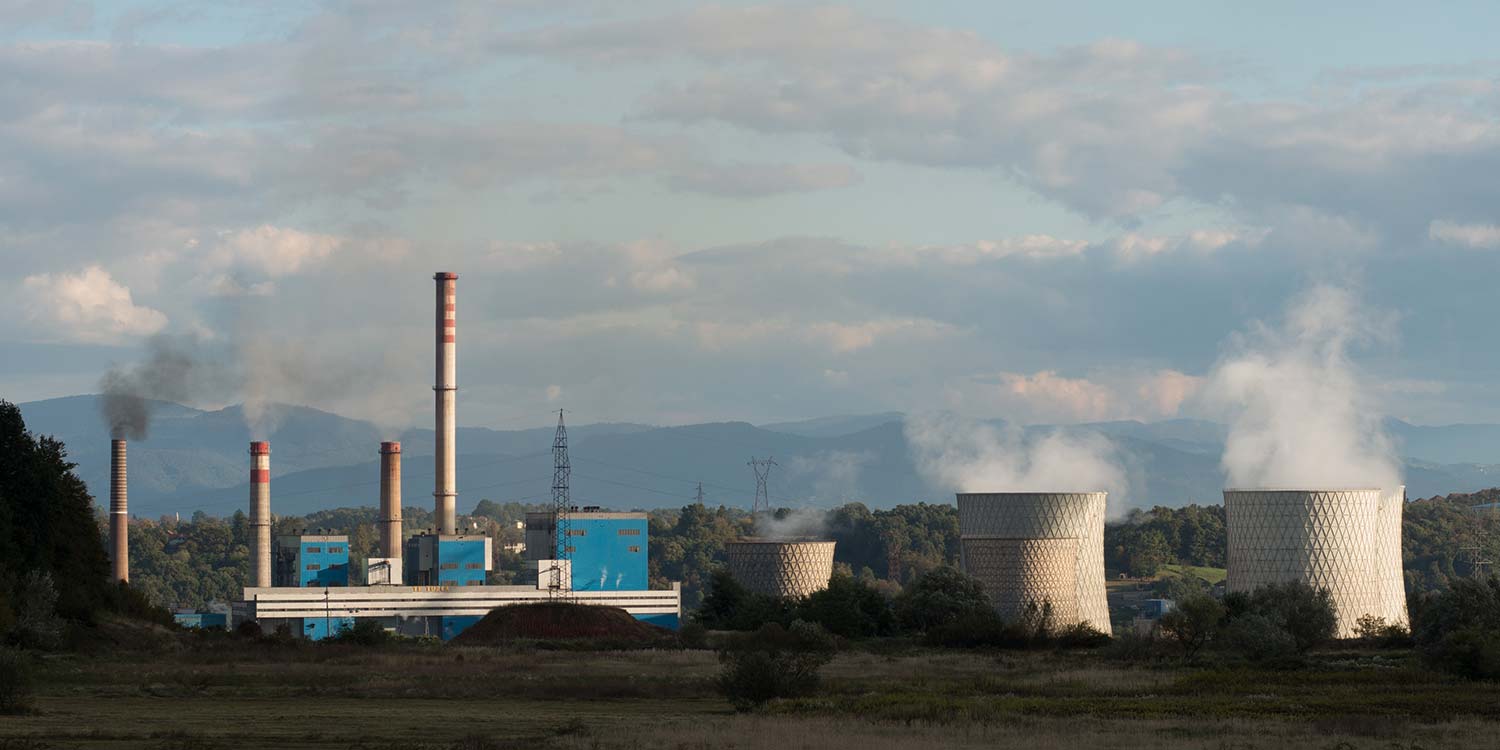Rushed loan approval for Tuzla 7 coal plant, but project far from ready
The China Exim bank and Bosnian power utility Elektroprivreda BIH yesterday signed a massive loan agreement for the Tuzla 7 lignite power plant – a project that would have dire health, economic and climate repercussions.
28 November 2017

A planned new unit at the Tuzla lignite power plant in Bosnia-Herzegovina will not meet new, stricter EU pollution standards if it is built as planned. (Image by Ana Constantinescu for Bankwatch.)
Prague, Sarajevo, Tuzla – The China Exim bank and Bosnian power utility Elektroprivreda BIH yesterday signed a massive loan agreement for the Tuzla 7 lignite power plant – a project that would have dire health, economic and climate repercussions.
The project’s backers used the opportunity of the 6th China-Central and Eastern Europe summit in Budapest to sign a EUR 613 million loan for the planned 450 MW Tuzla unit 7 lignite power plant in Bosnia-Herzegovina.
Reacting to this news, CEE Bankwatch Network, the Center for Ecology and Energy from Tuzla and Ekotim from Sarajevo pointed out that the signing is premature as the project is still far from ready:
Ioana Ciuta, Energy Co-ordinator at CEE Bankwatch Network, says:
“The fact that there’s an occasion to sign this loan agreement doesn’t make the project ready, quite the opposite – it is without the Parliament’s approval and haunted by legal and procedural challenges. The environmental permit is still being challenged in court, there is no energy permit, and the loan guarantee has not been approved by the State Aid Council”.
Denis Žiško from Center for Ecology and Energy, Tuzla, adds that:
“Tuzla 7 still does not have a definite location, let alone permits, for ash disposal. A proposal to locate it in Šički Brod is facing resistance from the local population.”
He called the loan signing a “death sentence for the population of Tuzla canton”, adding that “According to our [2013 study](http://www.ekologija.ba/userfiles/file/Health Impacts of Coal Fired Power Generation in Tuzla.pdf) carried out with the Health and Environment Alliance, between 2015-2030, 39,000 life-years will be lost as a result of the Tuzla and Banovići power plants, with total health-related economic costs of EUR 810 million.”
Pippa Gallop, Research Co-ordinator at CEE Bankwatch Network, says:
“While China is making strong steps forward at home in reducing coal use, it needs to demonstrate more leadership abroad by implementing its ‘Green Credit Directive’ for overseas investments. China Eximbank has failed to take into account the lack of environmental permit for the ash disposal site and has avoided disclosing information on its due diligence on the project. If China Eximbank finances projects like Tuzla 7 and others in the pipeline, there won’t be much left to inspire confidence about China’s green leadership.”
For more information contact:
Denis Žiško
Energy Campaign Co-ordinator, Center for Ecology and Energy, Tuzla
denis.zisko@ekologija.ba
+387 61 140 655
Rijad Tikveš
President, Ekotim, Sarajevo
rijad@ekotim.net
+387 62 381 701
Pippa Gallop
Research Co-ordinator, CEE Bankwatch Network
pippa.gallop@bankwatch.org
+385 99 755 9787
Skype: pippa.gallop
Ioana Ciuta
Energy Co-ordinator, CEE Bankwatch Network
ioana.ciuta@bankwatch.org
+40 724 020 281
Twitter: @unaltuser
Never miss an update
We expose the risks of international public finance and bring critical updates from the ground – straight to your inbox.
Institution: Chinese Investors
Theme: Energy and climate
Location: Bosnia and Herzegovina
Project: Tuzla 7 lignite power plant, Bosnia and Herzegovina
Tags: Elektroprivreda BiH | air pollution | coal
